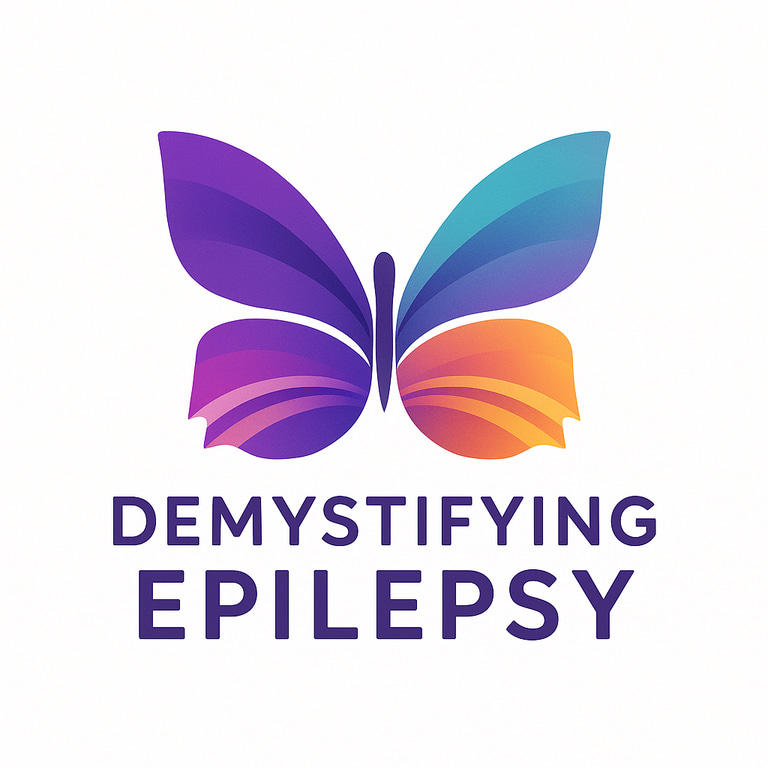Epilepsy and Independence: Driving, Work, Education, Sports, and Having Children
• Epilepsy might shape your routine, but it shouldn’t limit your potential. • It may influence your lifestyle, but it should never define your abilities. • Epilepsy can change the “how,” but it doesn’t get to decide the “can.” • Your condition may set boundaries, but it doesn’t get to set your destiny. • Epilepsy affects circumstances, not capability. In this blog, we break down what true independence looks like for people living with epilepsy from driving laws and workplace rights to education, athletics, and starting a family. Whether you’re navigating life with epilepsy or supporting someone who is, this guide offers practical tips, global regulations, and empowering real-world perspectives.
Dr. Clotilda Chinyanya
10/31/20256 min read


When people hear the word epilepsy, one of the biggest fears that follows is the loss of independence. Living with epilepsy doesn’t mean giving up independence. It means learning how to navigate life confidently and safely, with awareness and support. People with epilepsy can and do live full lives: they drive, study, work, play sports, and raise families. This guide explores how to maintain independence across different areas of life while managing epilepsy responsibly.
“Will I still be able to drive?”
“Will employers take me seriously?”
“Can I finish school or build a career?”
“Can I participate in sports?”
“Can I have children?”
Let’s be clear:
Epilepsy may change how you do certain things, but it doesn’t take away your right to live freely, safely, and confidently. With the right information and support, thousands of people with epilepsy drive, work, study, travel, play sports, and raise families every single day.
🚗 Driving with Epilepsy — What’s Allowed and What’s Safe?
Driving represents freedom and self-reliance, but it also comes with serious responsibility. Driving is one of the most carefully regulated aspects of independence for people with epilepsy. The rules vary by country, but nearly all regions require a seizure-free period before licensing, verified by a healthcare provider. In most places, driving is possible once specific safety conditions are met.
✅ Common Driving Requirements
Seizure-free period — usually between 6 to 12 months, depending on the region.
Doctor’s medical certification confirming seizure stability.
Regular license reviews in some cases.
You can usually find exact regulations by searching “epilepsy driving laws + [your country]” or by visiting your national epilepsy association.
🔗 Learn more: Epilepsy Foundation – Driving and Seizures
🚘 Tips for Safer Driving
Keep a seizure diary to identify patterns and triggers.
Maintain your medication routine — never skip doses.
Avoid triggers like sleep deprivation and alcohol.
If in doubt, pause driving temporarily until your doctor advises it’s safe.
Independence isn’t only about driving. On days when driving isn’t permitted, using public transport, ride-sharing, or community programs is not a sign of weakness it’s smart independence and demonstrates adaptability.
💼 Employment — Can People with Epilepsy Work? Absolutely.
There are CEOs, engineers, teachers, artists, retail managers, and even surgeons living with epilepsy. The key is knowing your rights, communicating clearly, and managing your condition responsibly. Epilepsy shouldn’t limit a person’s professional goals. With the right accommodations, most people can work safely and effectively in almost any field.
✅ Understanding Your Workplace Rights
Most countries protect employees with epilepsy under disability or equality laws, such as:
The Americans with Disabilities Act (ADA) in the U.S.
The Equality Act (2010) in the U.K.
Employers cannot legally discriminate based on epilepsy. Reasonable accommodations are designed to help you perform your job effectively and safely.
Possible Workplace Accommodations
Flexible start or break times to manage fatigue.
Permission to work from home when needed.
A seizure response plan so coworkers know how to help.
Adjusted lighting or reduced screen glare if photosensitivity is an issue.
Advocate for awareness and education among coworkers because understanding builds safety and empathy.
🗣 Should You Disclose Your Epilepsy at Work?
Disclosure is a personal choice.
You might choose to tell your employer if:
✔ You want coworkers to know how to help during a seizure.
✔ You need legal access to accommodations.
✔ You value peace of mind through transparency.
You might choose not to disclose if:
✘ Your seizures are fully controlled.
✘ You fear stigma or bias in a particular environment.
If you decide to share, keep it simple:
“I have epilepsy. It’s well-managed with medication. If a seizure occurs, here’s what to do…”
Disclosure, when handled calmly, can build trust and strengthen team safety.
Building Confidence at Work
Confidence often grows with education and support. When people understand epilepsy, stigma fades, and ability shines through. Remember: you earned your position because of your skills, not despite your condition.
🎓 Education — Thriving in School and University
From elementary school to university, education is a cornerstone of independence. With open communication and preparation, students with epilepsy can thrive academically. Children, teens, and adults with epilepsy can and do succeed academically. Yet challenges such as fatigue, concentration difficulties, and anxiety about seizures in public are real and deserve support.
Common Challenges
Absence seizures that disrupt attention.
Medication side effects such as drowsiness, slower recall, fatigue.
Emotional stress about having a seizure at school.
Support Systems That Work
IEPs or 504 plans (U.S.) or similar disability support frameworks elsewhere.
Extra time during exams or private testing spaces.
Rest breaks for fatigue management.
Flexible attendance policies during medication adjustments.
Creating Safe and Supportive Learning Environments
Teachers, professors, and administrators should know what to do if a seizure occurs. A personalized seizure action plan ensures everyone understands the correct steps.
🔗 Helpful resources:
Tips for Students
Use digital alerts to remember medications.
Record lectures or use note-taking apps for missed details.
Build a circle of trust of a few friends, teachers, or staff who know how to help.
Encouraging Student Independence
Help students manage their own medication schedules and advocate for their needs.
Provide exam accommodations when fatigue or medication side effects interfere with performance.
Promote open conversations — understanding removes fear from the classroom.
Education isn’t just about grades. It’s about confidence, advocacy, and resilience, all of which can grow stronger when epilepsy is managed with awareness and communication.
⚽ Sports and Physical Activity
Sports are not off-limits for most people with epilepsy. In fact, exercise improves sleep, mood, mental wellbeing, physical health and social connections, all of which can help reduce seizure frequency. For most people with epilepsy, sports are safe and encouraged when appropriate precautions are taken.
Playing It Safe
Choose activities where supervision or teamwork is present.
Inform coaches about epilepsy and basic seizure first aid.
Avoid solitary high-risk sports like scuba diving or rock climbing alone.
There are swimmers, runners, soccer players, and even Olympians with epilepsy. Participation should focus on safety, enjoyment, and inclusion, not limitation.
🔗 Learn more: Epilepsy Foundation – Sports and Recreation
👶 Relationships, Pregnancy, and Having Children
Few topics raise as many fears as parenting with epilepsy, Fortunately, the truth is overwhelmingly positive. Most people with epilepsy can have healthy pregnancies and families if people are informed and know what precautions to take.
Planning ahead
Consult your neurologist before conception. Some anti-seizure medications may need adjusting to protect both mother and baby. Your obstetrician must know you have epilepsy and the medication you are taking. Ask you obstetrician if they are familiar with epilepsy.
🔗 Reliable information: Epilepsy Society – Pregnancy and Parenting https://demystifyingepilepsy.com/
Parenting with Epilepsy
Work closely with neurologists and obstetricians familiar with epilepsy.
Create a safety plan at home for feeding, bathing, or carrying children.
Use baby-proofing strategies and sleep routines that support your own rest.
Build a support network of family and friends. Independence does not mean doing everything alone.
Epilepsy may shape how you plan for parenthood, but it never cancels the possibility of family life.
💜 Emotional Well-Being and Support Networks
Independence isn’t just about physical ability, it’s also about emotional wellbeing. Living with epilepsy can bring challenges like fear, frustration, or stigma, but no one should have to carry those feelings alone. While family support is valuable, it isn’t always available and it isn’t the only option. There are safe, welcoming spaces where people with epilepsy can connect, heal, and feel understood.
Recommended networks:
Local epilepsy associations or online support groups. There are many local epilepsy associations and online communities worldwide far too many to list individually. If you’re searching for support on social media, simply type “epilepsy” into the search bar, and you’ll discover a range of groups. Browse through and join the one that best fits your needs or experiences.
Whether through therapy, mindfulness, or peer communities, emotional support can transform isolation into empowerment. When you meet others who truly get it, you don’t just find advice, you find strength, strategies, and sometimes lifelong friends.
🌟 Independence Looks Different for Everyone
Independence looks different for everyone, but it always begins with knowledge and confidence. Whether it’s driving, pursuing a career, staying active, or starting a family, people with epilepsy can achieve their goals and live meaningful, autonomous lives.
The path may require more planning and self-awareness, but with every challenge overcome, independence becomes not just possible, but powerful.
You may not drive right now. You might work part-time instead of full-time. Maybe you take breaks during exams or modify your exercise routine.
That’s not failure — that’s strategic independence.
Epilepsy doesn’t erase independence; it simply asks for adaptation. And adapting is a sign of strength.
🕊️ Final Takeaway: Epilepsy Is a Condition, Not a Cage
Living with epilepsy may require extra planning, discipline, and awareness — but it does not define your worth or your dreams.
You are not defined by your diagnosis. You are defined by how you live with it, how you adapt, and how you continue to grow.
Keep learning.
Keep advocating.
Keep moving forward at your own pace.
Further Reading:
